Renault Mégane vs VW T-Cross - Differences and prices compared
Compare performance (218 HP vs 150 HP), boot space and price (35100 £ vs 21400 £ ) at a glance. Find out which car is the better choice for you – Renault Mégane or VW T-Cross?
Costs and Efficiency:
When it comes to price and running costs, the biggest differences usually appear. This is often where you see which car fits your budget better in the long run.
VW T-Cross has a significantly advantage in terms of price – it starts at 21400 £ , while the Renault Mégane costs 35100 £ . That’s a price difference of around 13663 £.
Engine and Performance:
Power, torque and acceleration are the classic benchmarks for car enthusiasts – and here, some clear differences start to show.
When it comes to engine power, the Renault Mégane has a distinct edge – offering 218 HP compared to 150 HP. That’s roughly 68 HP more horsepower.
In acceleration from 0 to 100 km/h, the Renault Mégane is to a small extent quicker – completing the sprint in 7.40 s, while the VW T-Cross takes 8.40 s. That’s about 1 s faster.
There’s also a difference in torque: Renault Mégane pulls to a small extent stronger with 300 Nm compared to 250 Nm. That’s about 50 Nm difference.
Space and Everyday Use:
Cabin size, boot volume and payload all play a role in everyday practicality. Here, comfort and flexibility make the difference.
Both vehicles offer seating for 5 people.
In curb weight, VW T-Cross is evident lighter – 1267 kg compared to 1719 kg. The difference is around 452 kg.
In terms of boot space, the VW T-Cross offers to a small extent more room – 455 L compared to 389 L. That’s a difference of about 66 L.
When it comes to payload, VW T-Cross hardly perceptible takes the win – 480 kg compared to 446 kg. That’s a difference of about 34 kg.
Who wins the race in the data check?
The Renault Mégane is clearly superior overall in the objective data comparison.
This result only shows which model scores more points on paper – not which of the two cars feels right for you.
Costs and Consumption
View detailed analysis
Engine and Performance
View detailed analysis
Dimensions and Body
View detailed analysis
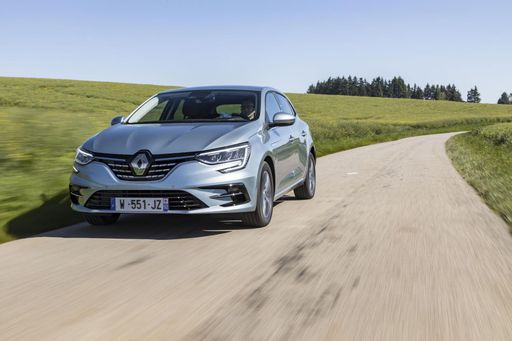
Renault Mégane
Renault Mégane
The Renault Mégane blends Gallic flair with practical everyday charm, showing that sensible transport can still have personality and poise. It’s a smart pick for buyers who want a comfortable, stylish hatchback that feels a little more special than the usual commute companion.
details
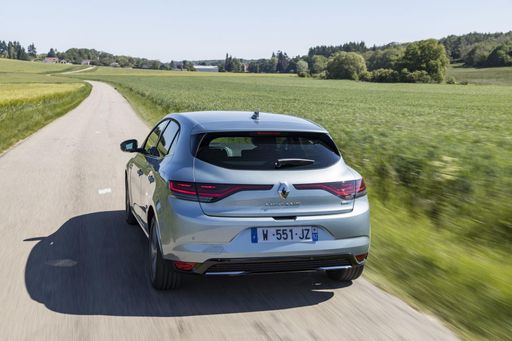
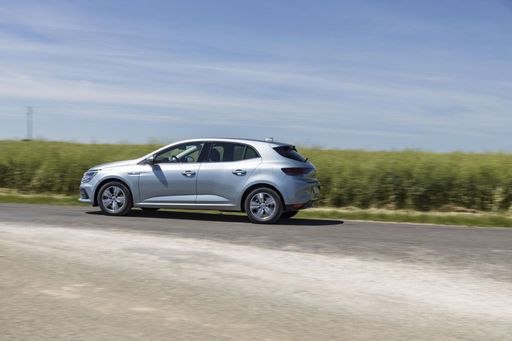
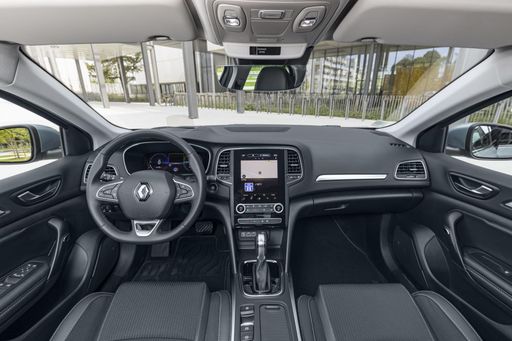
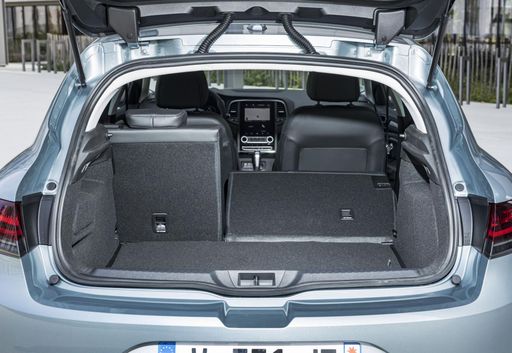
VW T-Cross
The VW T-Cross turns everyday practicality into a style statement, offering a roomy-feeling cabin, clever storage and playful design that suits town life and family duties alike. On the road it's composed and relaxed, rewarding buyers who want the raised seating and confident presence of an SUV without the weighty compromises.
details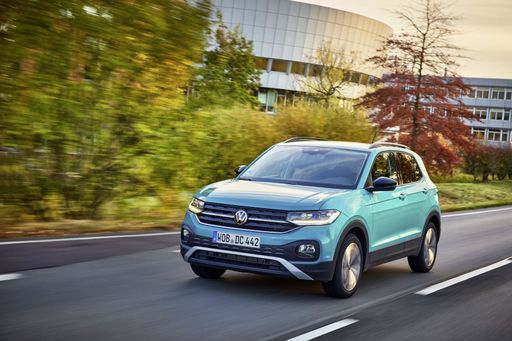
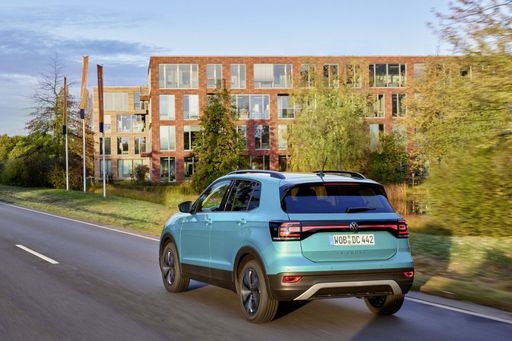
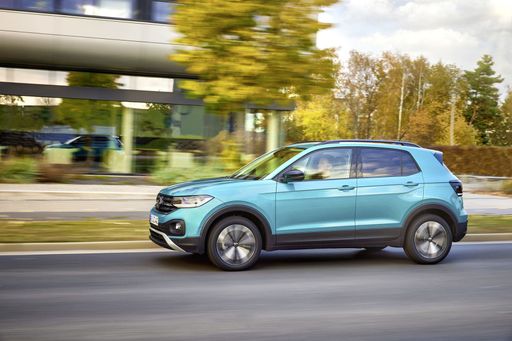
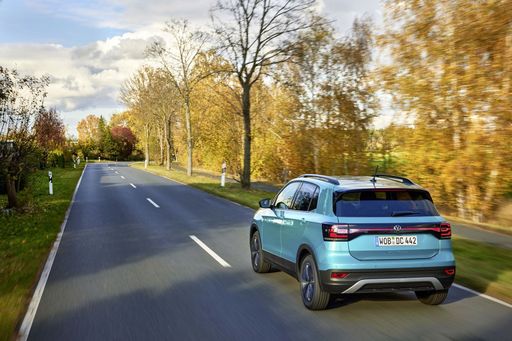
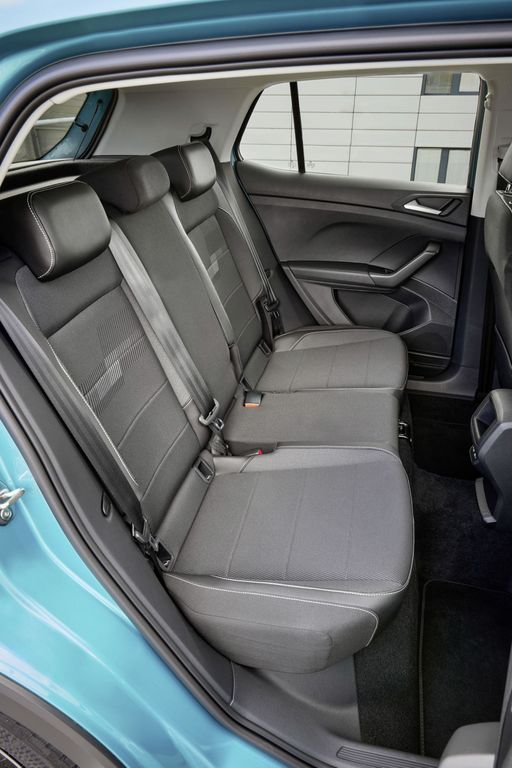
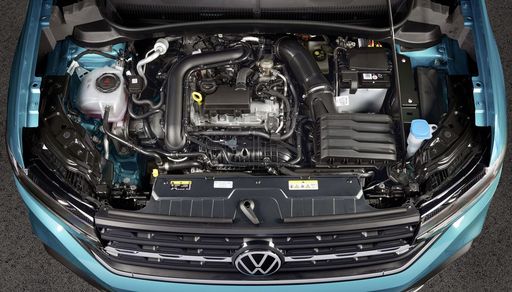
Costs and Consumption |
|
|---|---|
|
Price
35100 - 38500 £
|
Price
21400 - 32000 £
|
|
Consumption L/100km
-
|
Consumption L/100km
5.4 - 6 L
|
|
Consumption kWh/100km
15.40 kWh
|
Consumption kWh/100km
-
|
|
Electric Range
452 km
|
Electric Range
-
|
|
Battery Capacity
-
|
Battery Capacity
-
|
|
co2
0 g/km
|
co2
124 - 136 g/km
|
|
Fuel tank capacity
-
|
Fuel tank capacity
-
|
Dimensions and Body |
|
|---|---|
|
Body Type
SUV
|
Body Type
SUV
|
|
Seats
5
|
Seats
5
|
|
Doors
5
|
Doors
-
|
|
Curb weight
1719 kg
|
Curb weight
1267 - 1338 kg
|
|
Trunk capacity
389 L
|
Trunk capacity
455 L
|
|
Length
4200 mm
|
Length
-
|
|
Width
1783 mm
|
Width
1784 mm
|
|
Height
1505 mm
|
Height
-
|
|
Max trunk capacity
1332 L
|
Max trunk capacity
-
|
|
Payload
446 kg
|
Payload
463 - 480 kg
|
Engine and Performance |
|
|---|---|
|
Engine Type
Electric
|
Engine Type
Petrol
|
|
Transmission
Automatic
|
Transmission
Manuel, Automatic
|
|
Transmission Detail
Reduction Gearbox
|
Transmission Detail
Manual Gearbox, Dual-Clutch Automatic
|
|
Drive Type
Front-Wheel Drive
|
Drive Type
Front-Wheel Drive
|
|
Power HP
218 HP
|
Power HP
95 - 150 HP
|
|
Acceleration 0-100km/h
7.40 s
|
Acceleration 0-100km/h
8.4 - 11.3 s
|
|
Max Speed
160 km/h
|
Max Speed
-
|
|
Torque
300 Nm
|
Torque
175 - 250 Nm
|
|
Number of Cylinders
-
|
Number of Cylinders
3 - 4
|
|
Power kW
160 kW
|
Power kW
70 - 110 kW
|
|
Engine capacity
-
|
Engine capacity
999 - 1498 cm3
|
General |
|
|---|---|
|
Model Year
2025
|
Model Year
2024 - 2025
|
|
CO2 Efficiency Class
A
|
CO2 Efficiency Class
D, E
|
|
Brand
Renault
|
Brand
VW
|
What drive types are available for the Renault Mégane?
Available configurations include Front-Wheel Drive.
